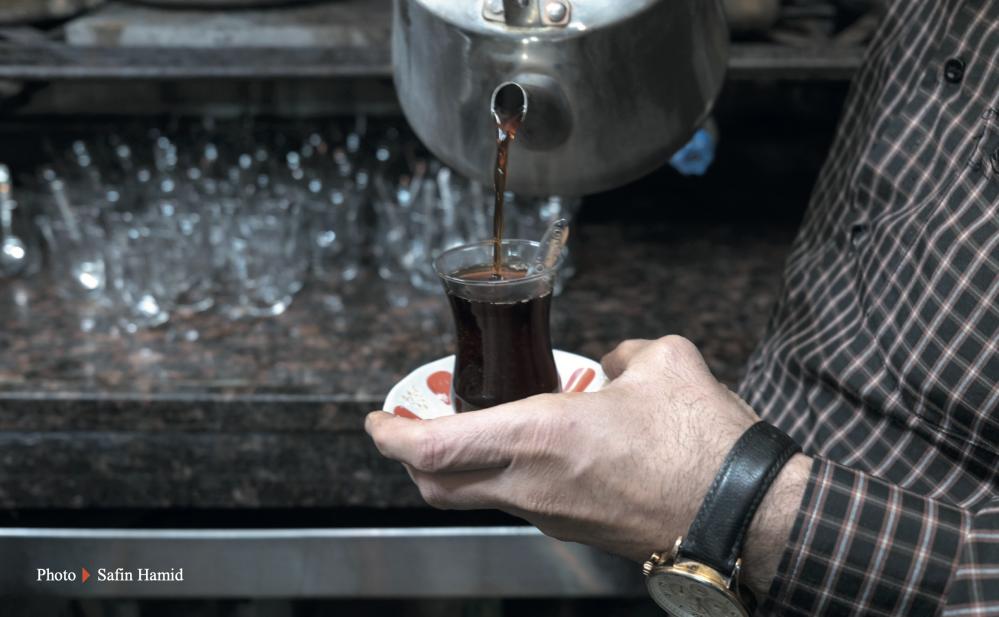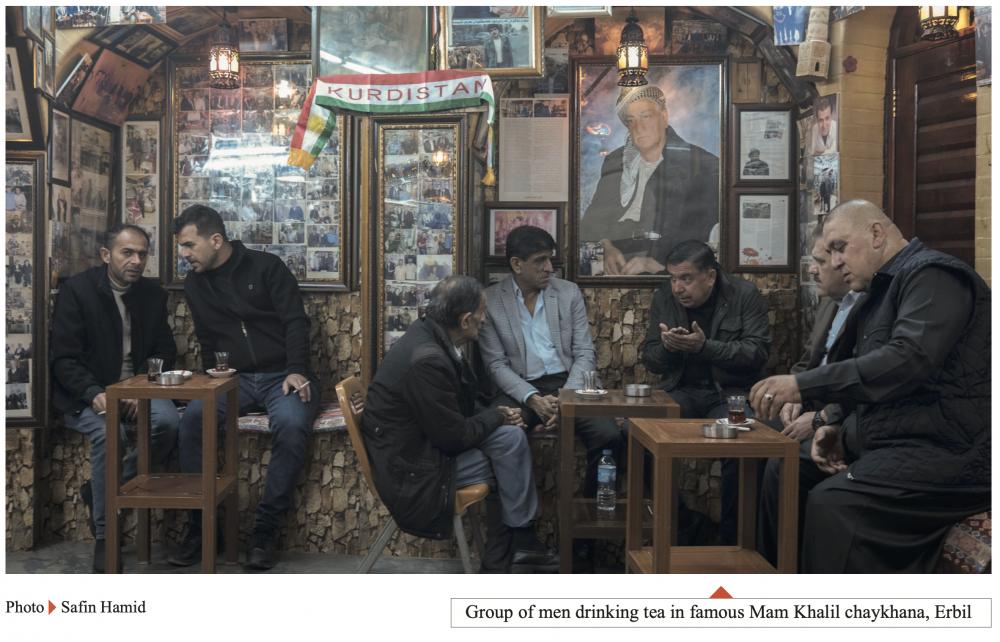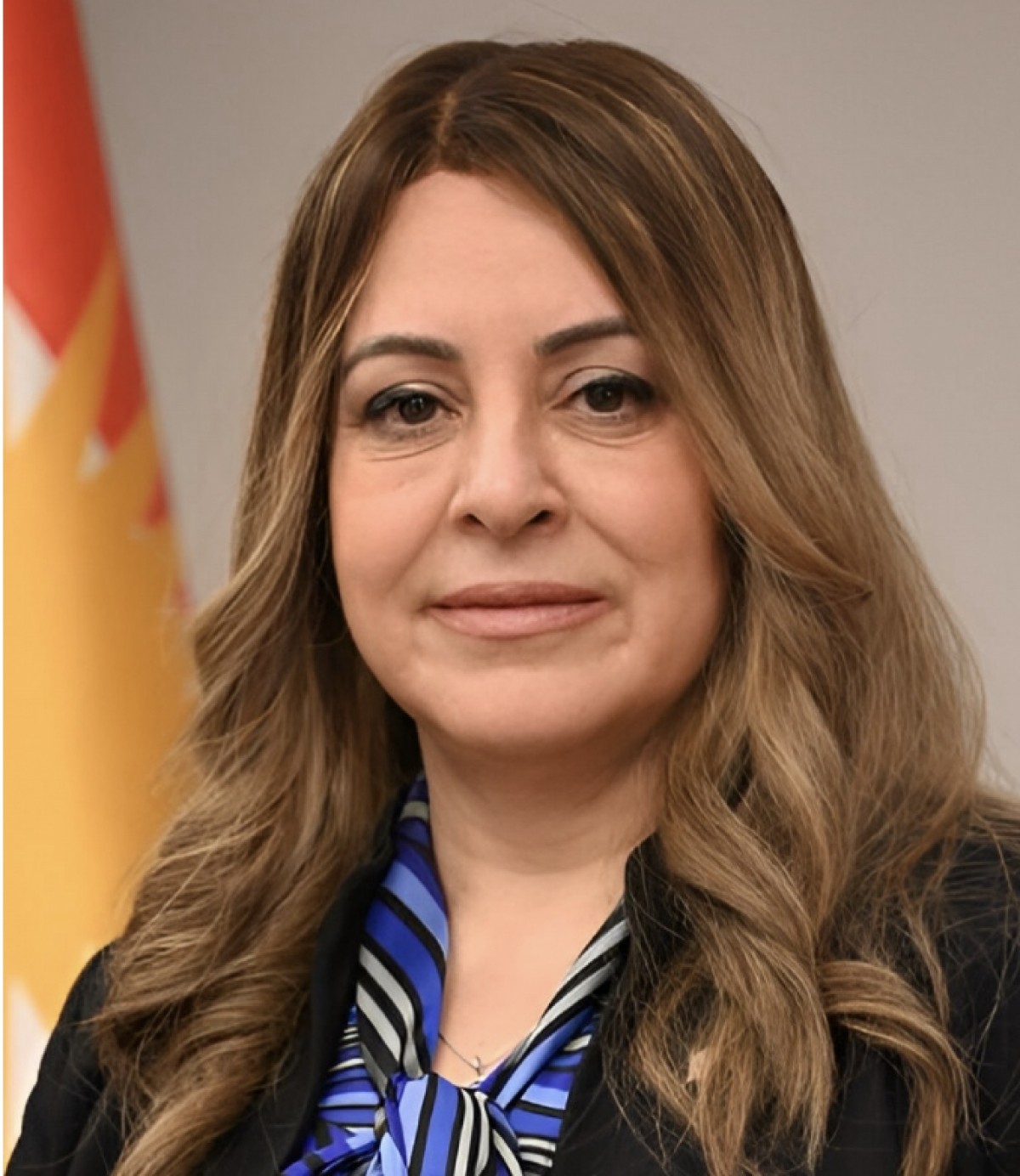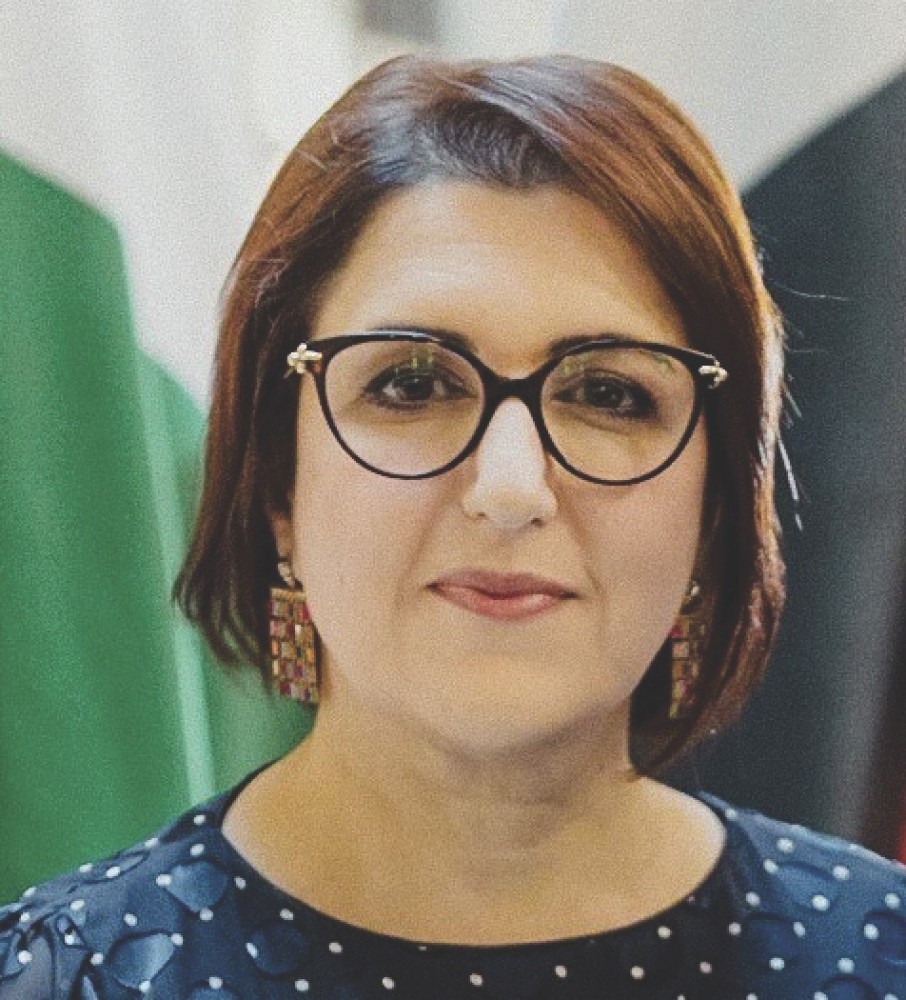Imagine the embers of a smoldering fire, a blackened metal tea pot in the middle, a bird singing nearby, mountains rising around you, perhaps even an orange sun setting behind one, and then a glass of tea, brewed patiently with the smoke of the fire.
For a tea drinker like me, this is an enormous gift, one that as you can see brings fond memories. The best picnic in Kurdistan ends with a sweet, strong, and smoky tea.
The Kurdistan Region of Iraq is my tea paradise. It’s the place where tea is always ready to be served, even at the front lines. When I visited the Kurdish frontlines with ISIS near Bashiqa a couple of years ago to talk to one of the generals, there came the tea, fresh and hot. As was the case in most of the offices I visited to speak to government officials, managers, and directors.
Kurdistan is a place where they know how tea should be made. Good chai is made from the best leaves that are put in a pot with cold water, brought to a boil, and then allowed to boil for a minute. Sometimes cardamom is added to enhance the taste and the smell. A pot of hot water is placed on top of the teapot to water down the brew, so every tea drinker can have it at just the right strength.

The best tea I ever had was made by Hassan, my Iraqi student from Baghdad who lived for a year in the media center I led in Sulemani. He knew exactly how I liked my tea: freshly brewed and without sugar, so not too strong. He had made it his task to provide us in the office with a fresh pot at least once every day.
This kind of tea you should drink from a glass, preferably a thin one, or istikan, that attractive little belly-shaped glass, often with gold around the rim and sometimes with the glass painted over. It stands on a small but deep saucer, which could be from matching glass but more often is made of white porcelain.
"Kurdistan is a place where they know how tea should be made."
The pouring of the tea starts with a couple spoons of sugar, which is when the struggle that I associate with tea in Kurdistan begins. The tea is so strong that it requires sugar, but I prefer my tea pure. Moreover, I cut sugar out of my diet years ago. So how do I get the tea boy or the host to pour me sugar-free, light tea that isn’t too light? Or a strong one with a tiny bit of sugar – and not the one heaped spoon that he or she considers as a ‘little sugar’?
Tea boy – oh yes, in Kurdistan that really is a job, mostly for men and very often for young men or boys. Often, they are so attractive that I have been wondering if they were selected based on their looks. Many offices have such tea boys. For when a visitor enters there, the rules of hospitality dictate that he or she is welcomed with a freshly poured tea.
Where the West has its cafes, Kurdistan has its chaykhanas, tea shops where the male owner pours tea from big steaming pots. Mostly, these are places for me to meet and chat over tea or hot creamy milk. Women may drink tea together at home. But when I go into a chaykhana with a friend, we are usually welcomed warmly, and even more so if I order another and yet another glass of tea, which I usually do as a tea addict.
Perhaps that is where my love for the Kurdistan Region started. With the glasses of tea that always appear when I arrived for an interview or a social visit. Usually, in those offices with the long couches around the walls, a bottle of water is offered before the tea.

Nowadays, you may also be offered coffee depending on the hour.
Coffee is a beverage I do not consume. Be it Arabic coffee, filter coffee, or instant, I like the smell but not the taste. So, when it appeared on the side table next to me during an interview, I faced a dilemma. It is impolite to refuse – and being polite is an important part of the local cultural code – yet I find it just as impolite to ignore that coffee next to me, which often has been made with just as much love as the tea.
The solution I found is to apologize profusely for the fact that I do not drink coffee. Usually, I am then offered the tea I was already pining for.
Kurdistan is my country because it is a country for tea drinkers. And the locally offered tea is of a good quality, not with funny additives and tastes, not the Moroccan way with mint, and not brewed too long and made bitter like in Turkey.
Although, with outside changes and the influences, ‘teabag tea’ entered Iraq long ago. Sometimes you will even be presented with the choice: chai or teabag tea. Teabag tea comes in a cup or mug of course, and the bag would suffice for a whole pot in my home country, the Netherlands.

